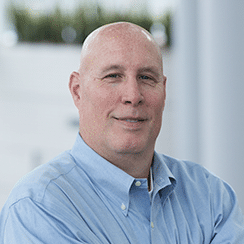Though the April jobs report was slightly better than economists predicted, hiring slowdowns continue, as organizations across industries navigate an uncertain economy. Yet, for insurance company Progressive, hiring is about to pick up—with plans to increase headcount by 12,000 by the end of 2025. And the company is already more than one-third of the way to that goal.
According to Neil Lenane, business leader of talent acquisition at Progressive, the hiring goal is a testament to the multi-year high-growth period the organization has been in.
“Progressive tends to be on the leading edge of where premiums are going, and over the last three or four years, the price has been right to attract customers,” he says. In turn, the organization is laser-focused on what will attract the talent needed to serve this higher customer demand. And, Lenane says, it has all come down to culture.
For Progressive, hiring and culture go hand in hand
Every few years, the organization refreshes its employer brand. In support, it recently rolled out Destination: Progress, an “ode to Progressive’s culture of internal movement,” Lenane says.
“Your journey has already begun—let Progressive help you keep your career moving forward,” reads the welcome message on its career site.
It’s a statement that, Lenane says, is meant to reflect that Progressive is a place where job seekers can “come, grow and have a career.” Lenane is a perfect example: He’s held 13 positions in his 35-year career with the organization.
“We’re going all in on something key to all of us: this long-term striving for developing and advancing our careers,” he says.
The Destination: Progress initiative has allowed real Progressive talent to tell that story to prospective employees through a video series showcased on the career site and social media platforms.

The storytelling approach, Lenane says, lends credibility to the message.
“Any time job seekers are looking at a company, it’s hard for them to ascertain the truth: ‘I see the words on your career site, but is that what really happens?’ ” he says. “[Hearing from real employees is] something candidates value; they want it to be authentic.”
A willingness to connect candidates to the company’s authentic culture is embedded in Progressive’s hiring practices. For instance, sometimes candidates may ask to speak with a member of an employee resource group to garner a firsthand look at employment with Progressive, and the organization has facilitated such requests.
Progressive’s external recognition is also helping to communicate its culture, Lenane says: The organization has been named to the FORTUNE 100 Best Companies to Work For eight consecutive years and scored in the 98th percentile among U.S. companies in a recent Gallup Engagement and Culture survey.
Strategizing for future growth
The areas in which Progressive is hiring run the gamut: claims, customer care, legal, sales, data science, marketing and more.
Changing the discourse about what working in the insurance industry is like is part of the task facing Progressive hiring teams, Lenane says.
“Many of our insurance competitors are challenged with hiring in the industry—but the fact is, insurance has many varied jobs,” he says. “That’s a value to job seekers, who can say, ‘Hmm, I never thought about the insurance industry like that.’ That varied amount of jobs makes it attractive.”
Though HR’s role in executing Progressive’s hiring strategy will be pivotal to its ongoing business growth, Lenane acknowledges that not all HR functions are similarly situated today. However, even in organizations where hiring is slowed or frozen at the moment, he notes, HR can still be a champion for strategic business success.
“Even if you’re not growing, you can still be investing in talent,” he says, advocating for a sharp focus on both engagement and retention.
“You can still add to the bottom line by focusing in on the things that employees value most—helping them see opportunities, which can create higher levels of engagement so they’re more likely to go above and beyond in serving customers—and stay for the long haul.”



